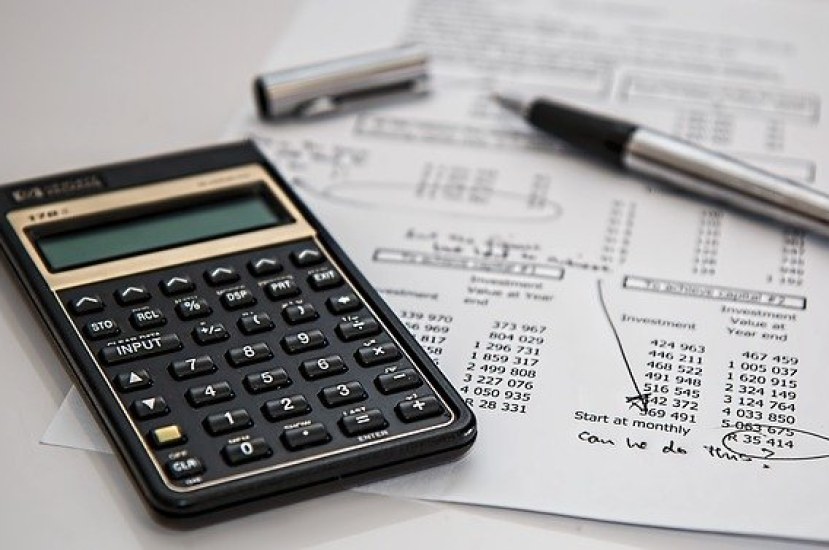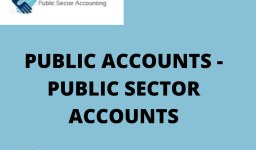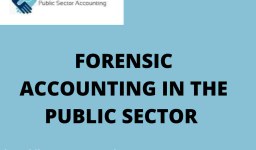DISTRICT ASSEMBLIES COMMON FUND
In this session, we will discuss the functions and composition of the District Assembly, duties of members and administration and supervision of the District Assemblies Common Fund.
let start …
Summary of Contents
Objectives
By the end of this session, you should be able to:
- a) identify a District Assembly
- b) describe the District Assembly Common fund
- c) describe the functions of the District Assembly Common Fund Administrator
- d) prepare the accounts of the common fund
Now read on…
Introduction
A District Assembly is a body corporate with perpetual succession and a common seal and may sue and be sued in its own name. it has the power for the discharge of any of its functions to acquire and hold movable or immovable property, to dispose of such property and to enter into any contract or other transaction.
READ ALSO: FINANCIAL REPORTING IN CENTRAL GOVERNMENT
Functions of the District Assembly
Before we move on let us find out : What is common fund
A District Assembly exercises political and administrative authority in the district, provide guidance and supervise the other administrative authorities in the district.
A District Assembly shall also perform the following functions.
- a) Responsible for the overall development of the district and shall ensure the preparation and submission through the regional co-coordinating council of development plans of the district to the National Development Planning Commission for approval, and of the budget of the district related to the approved plans to the Minister responsible for Finance
- b) Performing any other functions provided for under any other enactment
- c) Initiating, sponsor or carry out studies that are necessary for the performance of a function conferred by the constitution or by any other enactment.
- d) Responsible for the development, improvement and management of human settlements and the environment in the district
- e) Responsible in co-operation with the appropriate national and local security agencies, for the maintenance of security and public safety in the district.
- f) Initiating programs for the development of basic infrastructure and provide municipal works and services in the district
Composition of the District Assembly
In accordance with article 242 of the Constitution, a district Assembly shall consist of
The District Chief Executive
- b) One person from each electoral area within the District elected by universal adult suffrage in accordance with Regulations made for the purpose by the Electoral Commission
- c) The member or members of parliament from the constituencies that fall within the areas of authority of the District Assembly, except that member or those members shall not have a voting right. Any other persons not exceeding thirty per cent of the total membership of the Assembly appointed by the President in consultation with the traditional authorities and any other interest groups in the district
Duties of Members
A member of a District Assembly in accordance with the local government Act 1993 shall, as appropriate
- Actively participate in the work of the sub-committees of the executive committee
- Bring to bear on a discussion in the Assembly the benefit of the members’ shill, profession, experience or specialized knowledge.
- Maintain frequent liaison with organized productive economic groupings and any other persons in the district and take part in communal and development activities in the district.
- Present the views, opinions and proposals of the District Assembly
- Draw attention in general debate to national policies which are relevant to the subject under discussion.
Presiding member
In accordance with article 244 of the Constitution, the presiding member of a District Assembly shall be elected by the Assembly from among its members. The District Chief Executive or a Member of Parliament is not qualified to be elected as the presiding member. The presiding member shall be elected by at least two-thirds majority to the total number of the members of the Assembly. The presiding member shall hold office for a term of two years and is eligible for re-election. The presiding member shall convene and preside over meetings of the Assembly and perform any other functions prescribed by law.
District Chief Executive
The District Chief Executive for each district shall be appointed by the President with the prior approval of not less than two-thirds majority of the members of the District Assembly present and voting at the meeting.
- The District Chief Executive shall be the chairman of the executive committee of the District Assembly. The District Chief Executive
- Shall preside at meetings of the executive committee of the District Assembly and in the absence of the District Chief Executive a member of the Executive Committee elected by the members present from among themselves shall preside.
- Be responsible for the day-to-day performance of the executive and administrative functions of the District Assembly
- Be responsible for the supervision of the District Assembly
- The District Chief Executive shall be the chief representative of the Central Government in the district.
Executive Committee
The executive committee shall consist of not more than one-third of the total number of the members of the Assembly elected by the members from among themselves. The executive committee of a District Assembly shall perform the executive and coordinating functions of the District Assembly. An executive committee shall
- Develop and execute approved plans of the units, area and towns and sub-metropolitan districts within the area of authority of the District Assembly.
- Coordinate plans and programs of the sub-committees and submit these as comprehensive plans of action to the District Assembly.
- Oversee the administration of the district in collaboration with the office of the District Chief Executive.
- Implement resolutions of the District Assembly
District Assembly Common Fund (DACF)
The District Assembly Common Fund is established by the District Assembly Common Fund Act 1993, (Act 455) under Article 242. The purpose of setting this fund is to provide resources to support the developmental activities of the local government. It is a fund created out of the consolidated fund to channel resources from the central government to the local governments for development.
The District Assemblies’ Common Fund (DACF) is a pool of resources created under section 252 of the 1992 constitution of Ghana. It is a minimum of 5% of the national revenue set aside to be shared among all District Assemblies in Ghana with a formula approved by Parliament. It is a Development Fund which enables the use of the nation’s wealth throughout Ghana to the benefit of all citizens.
Purpose of the DACF
- a) The Fund is to ensure equitable distribution of the national resources for the development in every part of Ghana. b) To Improve Housing Schemes.
- c) To support sanitation management
- d) It is to strengthen decentralization and to promote Sustainable self-help development communities. e) To improve upon primary health care delivery in all part of Ghana
- f) It is to improve the country’s educational facilities, and to ensure quality education g) The Fund support Community policing.
Sources of money into the fund
The District Assembly Common fund is financed from the following sources:
- a) A minimum of 5% of total tax revenue is transferred quarterly into the fund.
- b) Income from investment of the fund
- c) Donations and Grants
2.8.3 Expenditures Charged on the fund
- a) Disbursement to MMDAs/MPs
- b) Disbursement to RCCs
- c) Direct expenditures on behalf of MMDAs (reserves)
- d) Administrative expenses directly related to funding administration (audit fee, bank charges etc.)
Approved areas of spending the share of DACF by the MMDSs:
- a) Economic Ventures(Energy, Markets, Agriculture, Services roads etc.
- b) Social services(Education, health, Water, Sports and Recreation, Self-help projects, Educational Activities etc.)
- c) Administration (capacity building of DA staff and Assembly members, Accommodation, office Equipment etc.
- d) Environment(Sanitation, Disaster management)
- e) MPs common fund
Administration of the District Assembly Common Fund/ Functions of the Administrator
The fund is administered by the DACF Administrator appointed by the president. The DACF Administrator has the following mandatory functions:
- a) Propose formula annually for the allocation and distribution of the common fund to the MMDAs
- b) Allocate and distribute the common fund quarterly based on the approved formula to the various MMDAs
- c) Report in writing to the MOF on how the fund was distributed and utilized by the various MMDAs; and
- d) Perform any other functions required by the President of the Republic
Benefits of the District Assembly Common Fund (DACF)
- a) The fund aims at creating jobs for all through programmes such as cottage industries.
- b) It seeks to get more people to gain access to improved shelter through the housing.
- c) Through the fund, health facilities are expanded and improved to make health delivery accessible to many people
- d) Through the fund numerous school buildings and structures have been constructed for the increasing needs of the population.
- e) The fund encourages and supports communities that make effort to initiate their own development projects (Community Initiated Programme).
Challenges of the Administration of the DACF
- a) Delay in the release and disbursement of the fund to the MMDAs
- b) Government interference in the allocation and disbursement of the fund
- c) Inadequacy of funds
- d) Misappropriation and financial malpractices at the MMDAs level
- e) Over-reliance on the fund by some district assemblies. Retarding innovative financing.
Financial Report by the DACF Administrator
The Administrator of the common fund is obliged to submit to parliament, an annual report on the activities undertaken during the preceding fiscal year. The report should include information on the manner in which the monies lodged in the common fund has been distributed and the report of the Auditor-General on the accounts
The financial report of the common fund is basically made up of Income and Expenditure Account and then a statement of financial position showing the financial state of the fund.
ILLUSTRATION
The following trial balance was extracted from the District Assembly Common Fund as at 31st December 2017
District Assemblies Common Fund
Trial Balance as at 31st December 2017
| DR | CR | ||||
| GHS | GHS | GHS | |||
| Investment | 2,700.00 | ||||
| bank | 191,300.00 | ||||
| investments income | 1,300.00 | ||||
| common Fund | 367,500.00 | ||||
| Petty Cash | 700.00 | ||||
| Provision for Depreciation | 2,000.00 | ||||
| Depreciation Expense | 200.00 | ||||
| Utility | 800.00 | ||||
| Property, Plant and Equipment | 20,000.00 | ||||
| Disbursement to MMDA: | |||||
| Agona West DA | 22,000.00 | ||||
| Dangme West DA | 26,000.00 | ||||
| Biposo MA | 17,000.00 | ||||
| Kibi DA | 32,000.00 | ||||
| Gomoa Metro | 20,000.00 | 117,000.00 | |||
| Disbursement to RCC: | |||||
| Kumasi | 3,000.00 | ||||
| Accra | 3,000.00 | ||||
| Cape Coast | 3,000.00 | ||||
| Takoradi | 3,000.00 | 12,000.00 | |||
| 370,800.00 | 370,800.00 | ||||
Additional Information:
The balance of the Common Fund as at 1st January 2017 was GHS 67500
Required
- Prepare the statement of Financial Performance of the administrator for the year ended 31st December 2017
- Prepare the Statement of Financial Position of the administrator as at 31st December 2017
Solution
District Assemblies Common Fund Statement of Financial Performance for the year ended 31st December 2017
| INCOME | GHS | GHS |
| Investment Income | 1,300.00 | |
| Common Fund Received | 300,000.00 | |
| 301,300.00 | ||
| EXPENDITURE | ||
| Depreciation | (2,000.00) | |
| Utility | (800.00) | |
| Disbursement to MMDA | (117,000.00) | |
| Disbursement to RCC | (1,200.00) | (131,800.00) |
| Excess Income Over Expenditure | 169,500.00 | |
| Fund Balance b/f | 67,500.00 | |
| Fund Balance c/f | 237,000.00 | |
District Assemblies Common Fund Statement of Financial Position as at 31st December 2017
| GHS | GHS | |
| Property Plant and Equipment (20000-2000) | 18,000.00 | |
| Investment | 27,000.00 | |
| 45,000.00 | ||
| Current Assets: Bank Balance | 191,300.00 | |
| Pretty Cash | 700.00 | 19,200.00 |
| 237,000.00 |
summary
This session presented an overview of the District Assemblies concept in terms of functions of District Assemblies, sources of revenue and associated problems with raising these revenues.
The session further looked at sources of amounts of money into the common fund and expenditures charged on the fund, the functions of the DACF Administrator, benefits and challenges of the DACF.
Self-Assessment Questions
Exercise
- State Three (3) ways by which the District Assemblies are financed.
- What is a common fund? Describe four (4) functions performed by the District Assembly Common Fund Administrator.
- State Four challenges facing the administration of the common fund and suggests four ways of dealing with such challenges.






Leave a comment